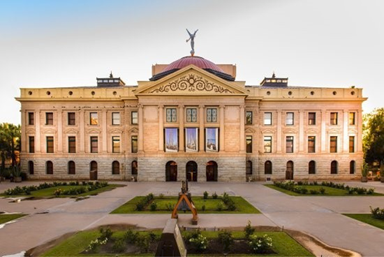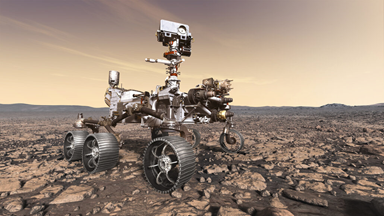Alabama lawmaker proposes mandatory kindergarten – By Tricia Powell Crain, AL.com
An Alabama lawmaker has filed a bill that could require all students to attend kindergarten as soon as the start of the upcoming 2021-22 school year.
The bill, filed by Rep. Pebblin Warren, D-Tuskegee, received approval last week from the House Education Policy committee and now heads to the full House for a vote.
The bill as written would go into effect prior to the start of the 2021-22 school year, which could impact 5-year-olds and 6-year-olds whose parents are currently deciding whether to enroll them in kindergarten or first grade. Warren has introduced similar bills in previous years.

West Virginia House passes charter school expansion bill – By Steven Allen Adams, The Intelligencer
The West Virginia House of Delegates passed two education bills Tuesday, with much debate over an effort to expand the state’s public charter school pilot program.
The House passed HB 2012, making changes to the state’s public charter school pilot program. The bill passed 66-32 and now heads to the state Senate.
HB 2012 would amend the pilot charter school program, changing the maximum number of public charter schools in a three-year period from three to 10.
“This bill gives choice,” said House Education Committee Chairman Joe Ellington, R-Mercer. “This gives (students) opportunities, and it’s our obligation to educate each of the students. The ones who want to go into that kind of setting shouldn’t be stopped from doing that is they’re going to excel there.”
The bill creates a new West Virginia Professional Charter School Board to act as an authorizer for charter school applications. Virtual charter schools would be allowed under the bill’s provisions — one statewide virtual charter and county-level virtual charters — though no more than 10 percent of the state or county’s student population can participate.

AZ Senate passes bill to provide fourth-year funding for career technical education – On KOLD.com
A bill that would provide fourth-year funding for career and technical education (CTE) is headed to the House of Representatives for approval, after the Arizona Senate passed the bill on Tuesday.
Currently, a ‘career and technical education district’ (CTED) must only include students in grades 10 through 12 in the calculation of student count.
SB 1179 would include students in grade 9 and the school year immediately following graduation.
“I’m a strong believer in career and technical education because it provides students an opportunity to learn a specific skill set that can be the basis for a career or a way to complement any higher education they pursue after graduating,” Senator Mesnard said. “I’m thrilled with the unanimous support for restoring funding for all four years of this worthy program, which increases access and expands opportunity for students to learn a trade and complete industry recognized CTE programs in fields that have strong demand.”

California students watch and learn through hands-on projects as Mars rover lands – By Sydney Johnson, EdSource
Science teacher Gay Young has followed just about every space expedition in recent memory. This week, she’s taking her elementary students on the journey with her, as NASA’s Perseverance rover touched down on Mars after a seven-month flight from Earth.
California teachers have struggled with creating engaging, hands-on learning activities for students during distance learning when supplies and safe laboratory environments are scarce. But this week, students around the state gathered virtually to watch as real rocket scientists attempted to land NASA’s latest Red Planet rover.
“I like to tie what’s happening in the news to my lessons, and we needed something positive that can give our students hope. Kids love space, and I told them ‘You might be the first generation to send humans to Mars!’” said Young, who teaches science for all grades at Kumeyaay Elementary in San Diego County.
On Thursday, thousands of California students watched live as the SUV-sized rover landed on the surface of Mars with a mission to help scientists identify signs of past microbial life on Mars, collect rock samples and pave the way for future human exploration.












